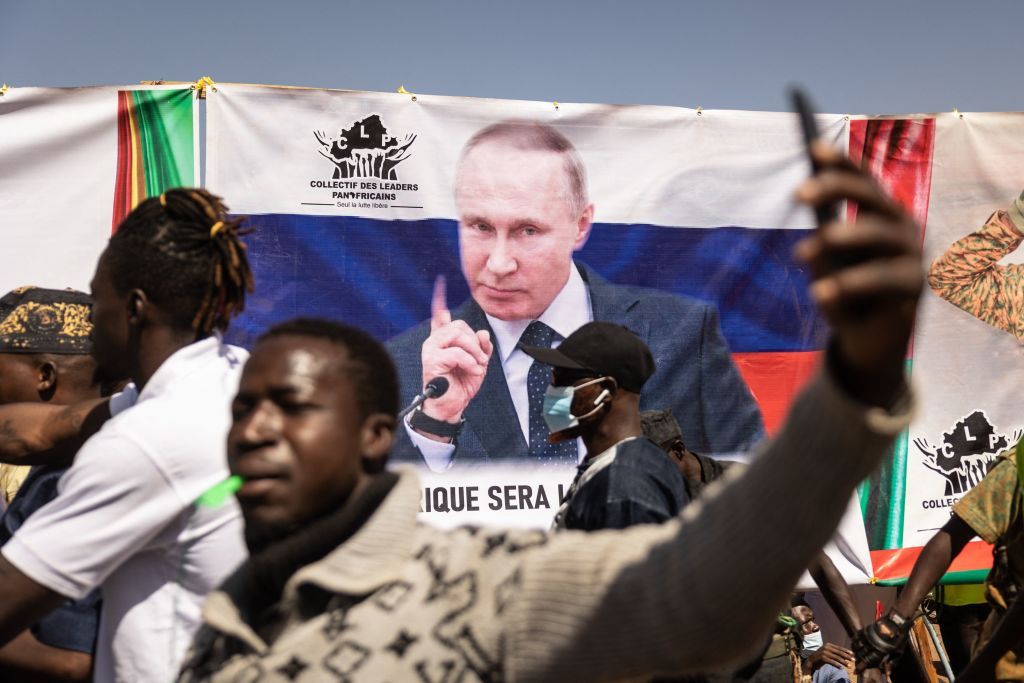Ukraine has about a month before it runs out of artillery shells, and the U.S. Congress cannot agree to ship more. Russian opposition leader Alexei Navalny is dead. The slaughter in Gaza continues with no end in sight. The Yemeni Houthis are attacking ships in the Red Sea. The North Koreans are testing intercontinental ballistic missiles. In normal times, pessimism can look like an intellectual fad. In times like these, it becomes a starker form of realism.
The post-1945 world order – written into international law, ratified by the United Nations, and kept in place by the balance of nuclear terror among major powers – is hanging by a thread. The United States is divided against itself and stretched to the limits of its capabilities. Europe is waking up to the possibility that, come November, America may no longer fulfill its collective defense obligations under Article 5 of the NATO treaty. Faced with this new uncertainty, Europe is cranking up its defense production, and European politicians are screwing up the courage to persuade their electorates that they will need to ante up 2% of their GDP to guarantee their own safety.
The Western alliance doesn’t just face the challenge of doubling down on defense while maintaining unity across the Atlantic. It also now faces an “axis of resistance” that might be tempted to threaten Western hegemony with a simultaneous, coordinated challenge. The lynchpin of this axis is the Russia-China “no-limits” partnership. While the Chinese supply the Russians with advanced circuitry for their weapons systems, Russian President Vladimir Putin ships them cheap oil. Together they have imposed autocratic rule over most of Eurasia.

If Ukraine’s exhausted defenders are forced to concede Russian sovereignty over Crimea and the Donbas region, the Eurasian axis of dictators will have succeeded in changing a European land frontier by force. Achieving this will threaten every state on the edge of Eurasia: Taiwan, the Baltic countries, and even Poland. Both dictatorial regimes will use their vetoes on the UN Security Council to ratify conquest, effectively consigning the UN Charter to history’s dustbin.
This partnership of dictators works in tandem with a cluster of rights-abusing renegades, led by Iran and North Korea. The North Koreans provide Putin with artillery shells while plotting to invade the rest of their peninsula. The Iranians manufacture the drones that terrorize Ukrainians in their trenches. Meanwhile, Iran’s proxies – Hamas, Hezbollah, and the Houthis – are helping Russia and China by tying down America and Israel.
Unless the U.S. can force Israel into a long-term ceasefire, it will find itself struggling to control conflicts on three fronts (Asia, Europe, and the Middle East). Not even a country that outspends its rivals on defense by two to one can maintain a war footing simultaneously across so many theaters.
The idea that democracies around the world will join up with America and Europe against the authoritarian threat seems like an illusion. Instead of joining with the embattled democracies of the Global North, the rising democracies of the Global South – Brazil, India, and South Africa – seem unembarrassed to be aligning with regimes that rely on mass repression, the cantonment of entire populations (the Uighurs in China), and shameless murder (Navalny being only the most recent example).
To be sure, the authoritarian axis currently is united only by what it opposes: American power. It is otherwise divided by its ultimate interests. The Chinese, for example, cannot be overjoyed that the Houthis are blocking freight traffic through the Red Sea. The world’s second most powerful economy doesn’t have all that much in common with an impoverished Muslim resistance army or with theocratic Iran.

Moreover, both Russia and China remain parasitic beneficiaries of a global economy that is sustained by U.S. alliances and deterrence. That is why they still hesitate to challenge the hegemon too directly. However, like sharks, they smell blood in the water. They have not only survived U.S. sanctions but continued to prosper, replacing their dependence on embargoed markets with new markets in Latin America, Asia, and India. Both Russia and China have discovered that American control of the global economy is not what it once was.
This discovery of American weakness might tempt them to risk a joint military challenge. As matters stand, U.S. diplomacy and deterrence have successfully kept the axis divided. CIA Director William Burns and National Security Adviser Jake Sullivan are keeping the channels open to China. Blowback American strikes against Iran have apparently convinced the theocrats to rein in Hezbollah and the militias in Iraq – though not the Houthis, whom nobody seems able to control.
It doesn’t take strategic genius to see the opportunity China and Russia might be contemplating. If they decided to mount an overt challenge to the American order – for example, with a coordinated, simultaneous offensive against Ukraine and Taiwan – the U.S. would struggle to rush weapons and technology into the breach.
Nuclear weapons would not necessarily deter China and Russia from risking a coordinated attempt to take Taiwan and the rest of Ukraine. All parties would pay a horrendous price, but Russia has shown what it is willing to expend in Ukraine, and both China and Russia may believe that there will never be a more opportune moment to overthrow American hegemony. If they were to combine forces, we would face the most serious challenge to the global economic and strategic order since 1945.
Nobody has any idea what the world would be like on the other side of such a confrontation. We cannot even assume, as we have always done, that America would prevail if faced with a simultaneous challenge from two formidable powers. If a pessimist is someone who imagines the worst in order to forestall it, we should all be pessimists. Keeping the authoritarian axis from becoming a full-fledged alliance should be America’s first-order priority.
Editor’s Note: Copyright, Project Syndicate. This article was published by Project Syndicate on March 5, 2024, and has been republished by the Kyiv Independent with permission. The opinions expressed in the op-ed section are those of the authors and do not purport to reflect the views of the Kyiv Independent.













